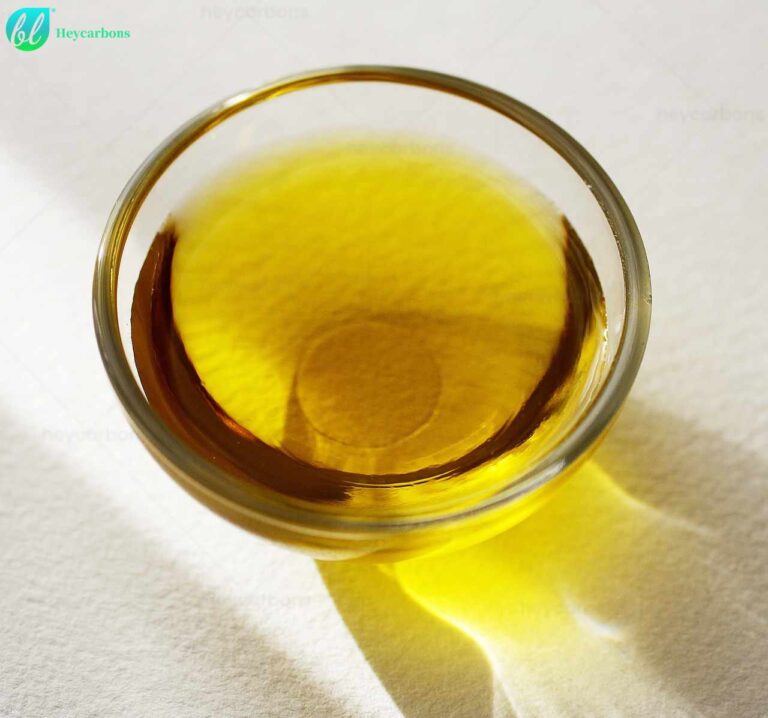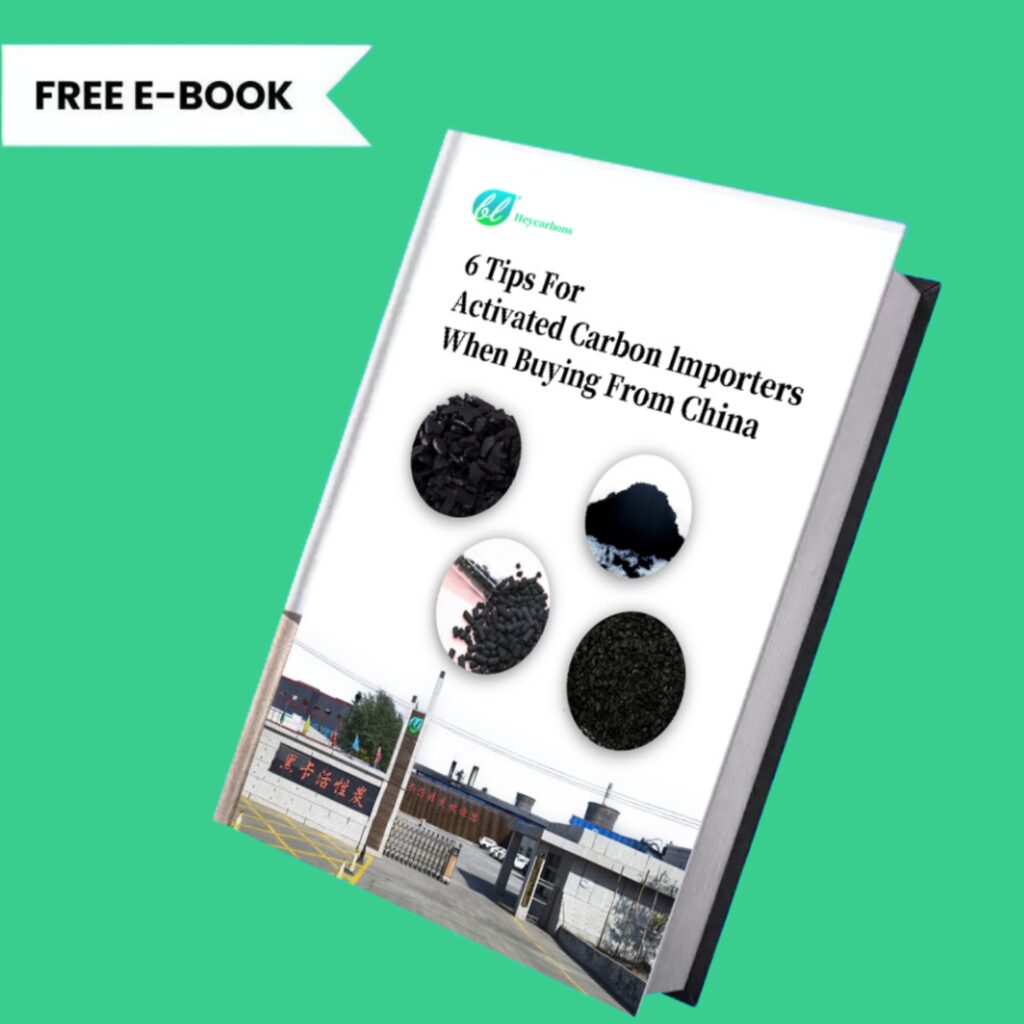Heycarb Wood Powdered Activated Carbon For Edible Oil
Heycarbons Activated Carbon For Edible Oil
Product Name: Wood/coal powdered activated carbon for edible oil.
Customer Port: Bangkok,thailand/ Chittagong, Bangladesh
Application: Coconut oil, Cottonseed oil, Peanut oil, Soybean oil, Olive oil, Corn oil, Soybean Oil,hemp oil…
Customer Business: edible oil(Soybean Oil,hemp oil) production
Wood PAC Request: . *Coal PAC Request:
- Size: Mesh200 . * Size: Mesh200 /325
- Iodine value: Mg/g 950/1000 . * Iodine value: Mg/g 900
- Methylene blue: 240 / 270 mg/g . * Molasses Number:200 -300
- Ash %: 6 max . * Methylene blue:150 – 270 mg/g
- PH: 5-7 . * PH:>7
- Moisture:<10% .* Ash %: 15 max,20% max
Packaging requirements:
From the pictures, you can find we mark the bags every time after testing, and then repack them before shipping to ensure that the bags are clean and tidy.
You will get a quote in 24 hours
Heycarb Other Popular Powdered Activated Carbon For Edible Oil
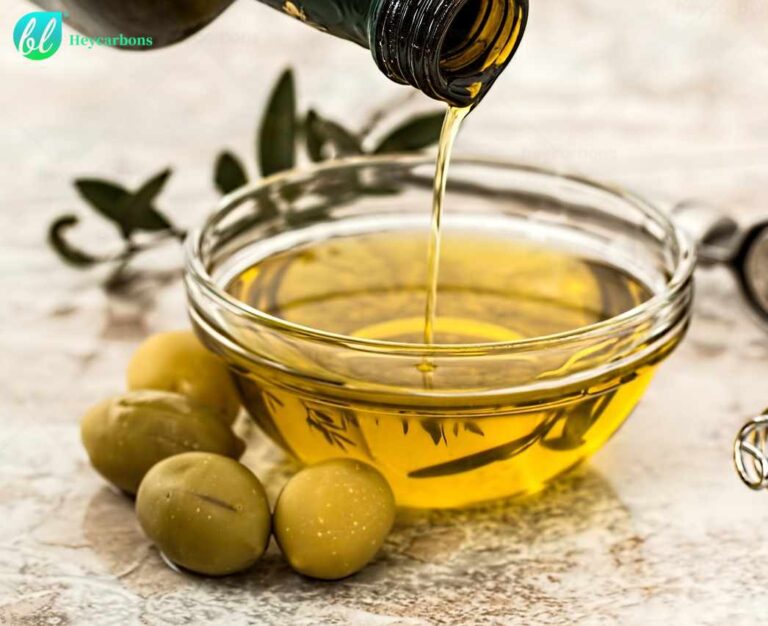
Wood Powdered Activated Carbons For Edible Oil
- Size: Mesh70, 100, 200, 325
- Iodine value: Mg/g 800-1050
- methylene blue: 140-320mg/g
- Bulk density g/cm3 0.35-0.45
- Ash %: 4-7
- PH: 5-7 ( others 2-4,3-5)
You will get a quote in 24 hours
Coal Powdered Activated Carbon For Edible Oil
- Size: Mesh100, 200, 325
- Iodine value: Mg/g 800-1050
- methylene blue: 110-260mg/g
- Molasses Number:200 -300
- Bulk density g/cm3 0.4-0.5
- Ash %: 10%,12%,15%
- PH: >7
You will get a quote in 24 hours
Learn more about edible oil decolorization:
Application of wood powder activated carbon in vegetable oils:
The main component of oil is fatty acid glyceride, which also contains a small amount of free fatty acids and other impurities. The type and quantity of impurities are affected by the raw materials of oil, so the refining methods of oil are different.
Impurities are the products of metabolism of animals and plants in the life process, which are of great significance to their life activities, especially antioxidant impurities, which can prevent oil from oxidation and rancidity. Oil refining removes harmful components and retains beneficial components.
Usually, the refining method has three steps, namely neutralization, decolorization and deodorization. Neutralization generally uses sodium hydroxide to remove free fatty acids, and also has the function of removing proteins and colloids, and reducing the color. To make the oil light in color, further treatment is required. The treatment method can be through the action of chemical agents, but the common use is to use adsorbents.
Activated clay and activated carbon are indispensable adsorbents in the oil industry. White clay mainly plays a decolorizing role, while activated carbon mainly deodorizes, removes odors and decolorizes.
The selection of activated carbon type is also very important. Activated carbon products made by different activation methods have different performances and are suitable for decolorization of different oil products. It is better to test them before use. The pH value of activated carbon is crucial. Too much alkalinity or acidity can cause adverse changes in oil products. Heycarbons will recommend the appropriate pH according to the customer’s oil situation.
- Coconut oil
The variegated color and impurities of coconut oil can be well refined by using activated carbon without mixing with other materials. For general coconut oil, the addition of activated carbon is less than 1% to obtain a good refining effect; but for crude oil of poor quality, the addition of activated carbon needs to be increased. The selection of activated carbon type is crucial. Different activated carbon varieties have a significant effect on the effect of decolorization and impurity removal.
- Cottonseed oil
Cottonseed oil has a complex composition, containing gossypol, various sugars, resins, lutein, chlorophyll, etc., so white clay and activated carbon need to be used in combination to achieve satisfactory treatment results. The ratio of activated carbon to clay is generally 1:(4~5), depending on the quality of the oil. Clay can remove yellow pigments, and activated carbon removes red and green, and the two have complementary advantages.
Activated carbon can also eliminate the earthy smell caused by the use of clay, and can also remove very trace substances such as saponins, phospholipids, colloids, etc. In the process of cottonseed oil treatment, it is not advisable to use acidic clay because it is easy to decompose oils and has the effect of promoting oxidation.
- Peanut oil
General peanut oil is of relatively good quality, and only activated carbon decolorization is required to achieve the effect. If it is dark peanut oil, clay and activated carbon need to be used together to achieve good results.
- Soybean oil
Soybean oil can be used for both food and paint. When used for food, in addition to using an adsorbent with a high ratio of activated carbon to clay, the other methods are similar to those for cottonseed oil treatment, especially when the oil is very dark green. Activated carbon can remove substances that can produce bad odors in finished oil.
- Olive oil
Due to the different pressing and extraction processes, the quality of olive oil is also different. High-quality olive oil, especially the olive oil obtained from the first pressing, does not need to be bleached. Low-quality olive oil can be treated with a mixture of white clay and activated carbon.
Olive oil obtained by carbon disulfide extraction often has a dark green color, which can be improved by treating with a mixture of white clay and activated carbon adsorbent to make it a golden product.
- Corn oil
Corn oil can be treated with a mixture of white clay and activated carbon, but the proportion of activated carbon needs to be less than that of other oils. Some people believe that it should be treated under partial vacuum and at a temperature of 80°C or lower.
- Hemp oil
PH: The surface charge and pore structure of activated carbon may change under different pH values, thus affecting its adsorption capacity. Generally speaking, activated carbon has better adsorption effect under neutral or weakly acidic conditions (pH 5-7).
Temperature control:
The control of temperature during the decolorization process is very important. Too high temperature may cause the adsorption capacity of activated carbon to decrease, while too low temperature may slow down the decolorization process. It is generally recommended to operate within the range of 40-60℃.
Agitation and contact time:
Sufficient stirring helps to increase the contact area between activated carbon and oil, thereby improving the decolorization effect. The contact time also needs to be reasonably controlled, usually between 30-60 minutes, adjusted according to specific circumstances.
- Soybean Oil
Decolorization: Powdered activated carbon has a huge specific surface area and rich pore structure, which can effectively adsorb pigments in soybean oil, such as chlorophyll and carotenoids, to achieve the purpose of decolorization.
Removing odor: Activated carbon can adsorb odor molecules absorbed during storage and transportation in soybean oil, improving the flavor of the oil.
Removing impurities: Powdered activated carbon can also remove harmful impurities such as polycyclic aromatic hydrocarbons and pesticide residues in soybean oil, improving the safety and quality of oil products.
These uses effectively improve the appearance, flavor and safety of soybean oil, making it more suitable for market demand.
High Quality Custom Heycarb Activated Carbon Solution For Edible Oil
Heycarbons provides a full range of activated solutions at competitive prices.
Why Choose Heycarbons Activated Carbon For Edible Oil
Heycarbons has proudly served the activated carbon industry with high-quality products since 2005. have 16 patents.
- First, on the left you can see what our customers say about us?
- Secondly, we have extensive experience in the food decolorization industry.
- When encountering problems, we actively respond to ensure a good customer experience
You will get a quote in 24 hours
Heycarb Other Activated Carbon Solutions for Thailand Market
Food Decolorization
Provide 8*16, 8*30, 12*40 mesh bituminous or briquetting activated carbon for food and water decolorization and purification, such as Sugar, MSG, Juice and wine, Edible oil, glycerin, Sewage decolorization, Corn starch sugar, amino acid, etc.
Waste water Treatment
Supply of granular and powdered activated carbon for wastewater treatment to remove COD. BOD, heavy metals, organics, acid odors, hydrocarbons, color, etc.
Catalyst Carrier
Special process adding Special substance Pellet (Extruded) activated carbon also named Catalyst activated carbons. used for acid gas treatment such as H2S, water washing regeneration, and high strength.
Food Purificaion Decolorization
Provide 8*16, 8*30, 12*40 mesh bituminous or briquetting activated carbon for food and water decolorization and purification, such as Sugar, MSG, Juice and wine, Edible oil, glycerin, Sewage decolorization, Corn starch sugar, amino acid, etc.
Advantage of Choosing Heycarbon
Technical Support
By understanding your needs and requirements, our salesmen work with you to submit the appropriate activated carbon solution.
Efficient Order Processing
Both before and after sales, our first-class customer service team has excellent communication skills and can interact seamlessly with our factories.
Price Advantage
The raw material is built in the production area, the steam is recycled, the cost is saved, Make only a reasonable profit
Quick Delivery
Adequate production capacity and large inventory to ensure the stability and large demand of your project
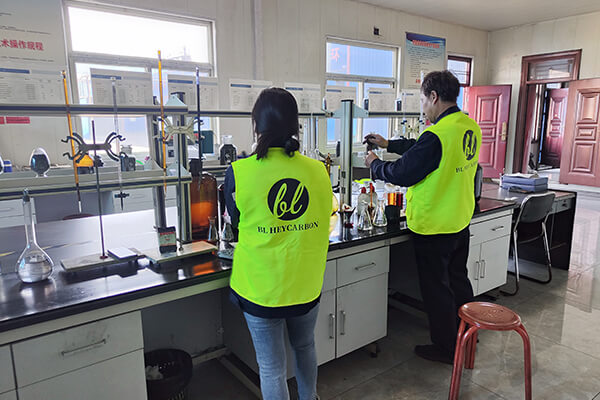
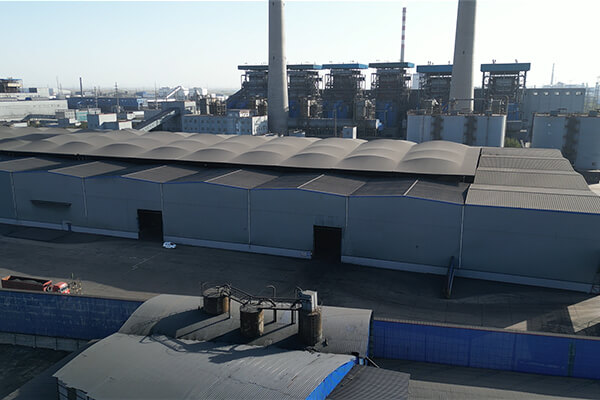
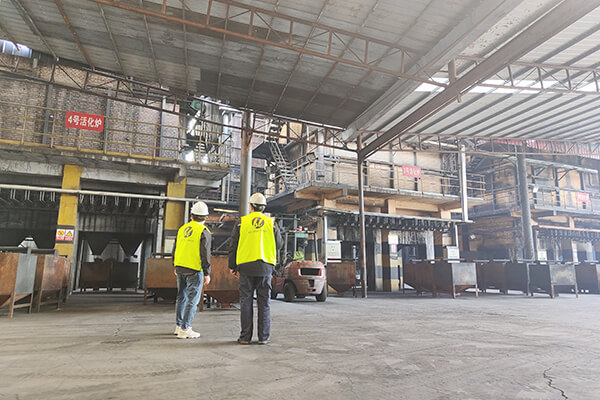

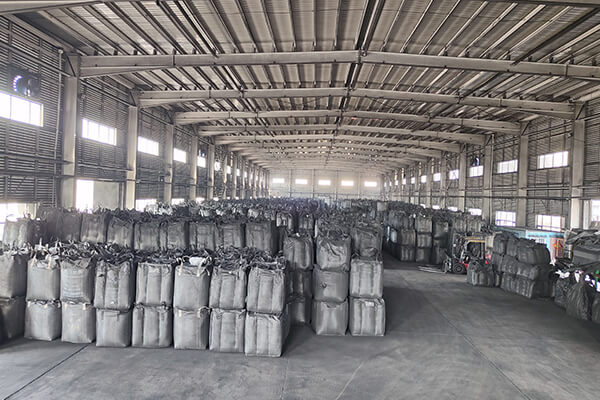
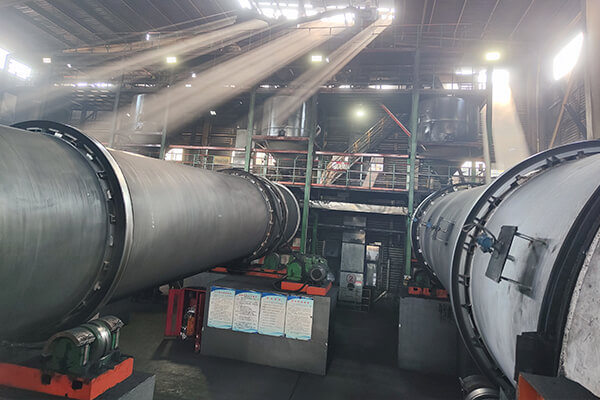






Activated Carbon FAQs
Heycarb provides on demand activated carbon solutions worldwide, product quality and customer service are highly rated by our partners and customers.
- Testing of selected raw materials
- Comprehensive display and monitoring of production temperature and time
- Sampling inspection of finished products
- Support any form of third-party testing , such as SGS
1. T/T Deposiit + Balance against copy of B/L
2. L/C
3. T/T deposit + L/C for balance
1. If necessary, the technician can go to the site to guide .
2. Order goods are consistent with the sample and TDS
3. Any quality problems occur, the seller will provide solutions within 24 hours.
4. If the package is damaged due to the seller’s negligence, resulting in a shortage of goods,
the seller should make compensation based on mutual agreement.
For customers’ trial orders, we actually do not have a specific MOQ, any amount is acceptable.
Heycarb need to choose a cost-effective transportation method and quantity based on your specific situation.
Normally , 5-7days , also depend on quantity
Yes, Heycarb provide samples for free.
Normally 25kgs/bag , 20kgs/bag , 500kgs/bag , black bag
Support any OEM drawing design bag .

